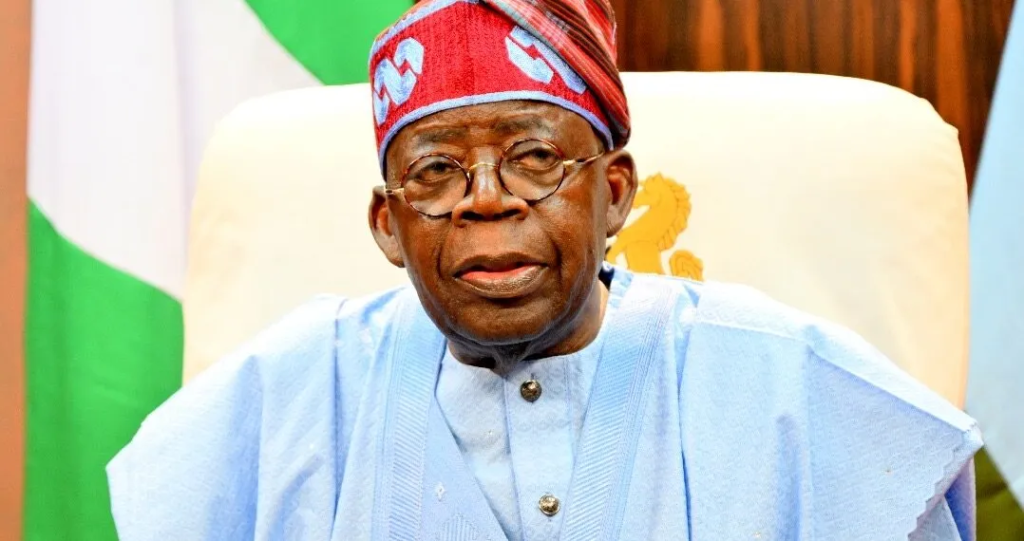
President Bola Tinubu’s decision to grant clemency to about 50 convicted drug offenders has sparked nationwide outrage, with critics warning that it undermines Nigeria’s anti-narcotics campaign and sends a dangerous signal about the government’s moral and policy direction.
The pardoned individuals were part of 175 inmates approved for state pardon and sentence reductions by the Council of State last Thursday. Those pardoned were convicted of crimes including drug trafficking, importation, and possession of narcotics such as cocaine, heroin, cannabis, tramadol, and Indian hemp.
According to presidential spokesperson Bayo Onanuga, the decision followed recommendations by the Presidential Advisory Committee on the Prerogative of Mercy, which cited remorse, good conduct, and vocational training among beneficiaries as factors considered.
“President Tinubu granted clemency to most of them based on reports that they had shown remorse and good conduct. Some were forgiven due to old age or enrolment in the National Open University of Nigeria (NOUN),” Mr Onanuga said.
A review by PREMIUM TIMES shows that drug-related offenders accounted for about 29% of the 175 convicts who benefited from the presidential clemency.
Observers say the move could undermine the efforts of the National Drug Law Enforcement Agency (NDLEA), which in recent years has waged an aggressive campaign against drug trafficking and abuse.
Just last week, the NDLEA intercepted 300,000 pills of Exol-5, ampoules of pentazocine, and capsules of tramadol in Niger and Kaduna States.
The agency, led by retired Brigadier-General Buba Marwa, has maintained a zero-tolerance stance, vowing to pursue traffickers “without fear or favour.”
However, critics fear that releasing drug offenders under clemency could weaken deterrence, erode enforcement morale, and embolden traffickers.
Former Vice President Atiku Abubakar condemned the move, calling it “a dangerous signal to the public and the international community.”
“Extending clemency to individuals convicted of grave crimes such as drug trafficking, kidnapping, and corruption diminishes justice and emboldens criminality,” Mr Abubakar said on X.
He added that the decision was particularly troubling given Nigeria’s ongoing struggle with rising drug abuse and the country’s reputational damage from past drug-linked controversies involving government officials.
Nigeria is facing a worsening drug epidemic. A 2018 National Bureau of Statistics (NBS) survey revealed that 14.4% of Nigerians aged 15–64 — about 14.3 million people — had used psychoactive substances, twice the global average.
The NDLEA reports that between 2021 and 2024, it seized nearly 10 million kilograms of hard drugs, arrested 57,792 suspects, and secured 10,572 convictions.
In 2024 alone, the agency recorded 3,427 convictions, rehabilitated 8,129 people, and destroyed 220 hectares of cannabis farms under its War Against Drug Abuse (WADA) campaign.
Despite these gains, activists say the president’s decision risks diluting the deterrent effect of NDLEA’s successes.
Human rights lawyer Inibehe Effiong described the decision as “a moral and legal misstep” that could embolden criminality.
“This pardon will embolden criminality and weaken the country’s justice system,” he said. “When a president issues a pardon, it extinguishes the criminal record of the person pardoned.”
Mr Effiong questioned the timing and motive behind granting clemency to offenders convicted of serious drug crimes.
Amnesty International also condemned the decision, saying it “prevents reparations for victims and undermines the rule of law.”
“The way Nigerian authorities carried out the exercise seemed to prioritise perpetrators instead of victims,” the organisation said, warning that it could “entrench impunity for human rights crimes.”
Some of the pardoned or sentence-reduced offenders include:
Nigeria is facing a worsening drug epidemic. A 2018 National Bureau of Statistics (NBS) survey revealed that 14.4% of Nigerians aged 15–64 — about 14.3 million people — had used psychoactive substances, twice the global average.
The NDLEA reports that between 2021 and 2024, it seized nearly 10 million kilograms of hard drugs, arrested 57,792 suspects, and secured 10,572 convictions.
In 2024 alone, the agency recorded 3,427 convictions, rehabilitated 8,129 people, and destroyed 220 hectares of cannabis farms under its War Against Drug Abuse (WADA) campaign.
Despite these gains, activists say the president’s decision risks diluting the deterrent effect of NDLEA’s successes.
Human rights lawyer Inibehe Effiong described the decision as “a moral and legal misstep” that could embolden criminality.
“This pardon will embolden criminality and weaken the country’s justice system,” he said. “When a president issues a pardon, it extinguishes the criminal record of the person pardoned.”
Mr Effiong questioned the timing and motive behind granting clemency to offenders convicted of serious drug crimes.
Amnesty International also condemned the decision, saying it “prevents reparations for victims and undermines the rule of law.”
“The way Nigerian authorities carried out the exercise seemed to prioritise perpetrators instead of victims,” the organisation said, warning that it could “entrench impunity for human rights crimes.”
List of pardoned drug offenders
Some of the pardoned or sentence-reduced offenders include:
- Kelvin Christopher Smith, 42 – imported cocaine (4-year sentence, 2023)
- Azubuike Jeremiah Emeka, 31 – cocaine importation (5 years or ₦3 million fine, 2021)
- Abiodun Elemero, 43 – life imprisonment for cocaine hawking (10 years served before pardon)
- Ahmed Adeyemo, 38 – 15-year sentence for cannabis (9 years served)
- Aluagwu Lawrence, 47 – Indian hemp sales (convicted 2015)
- Ben Friday, 60 – marijuana possession (3 years or ₦1.3 million fine, 2023)
- Ifenna Kennechukwu, 42 – 20-year cocaine importation sentence reduced to 12 years
- Helen Solomon, 68 – cannabis possession (sentence reduced from 5 to 3 years)
While President Tinubu’s clemency power is constitutionally backed under Section 175 of the 1999 Constitution, critics argue that mass pardons for drug traffickers could undermine the credibility of Nigeria’s anti-drug efforts and weaken public confidence in the justice system.